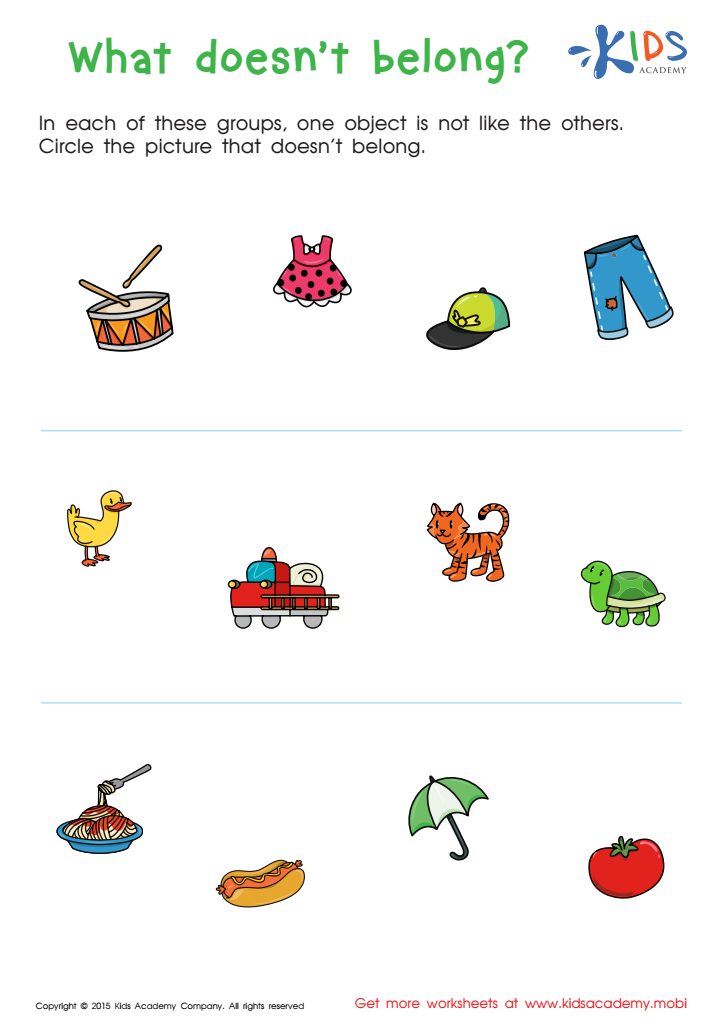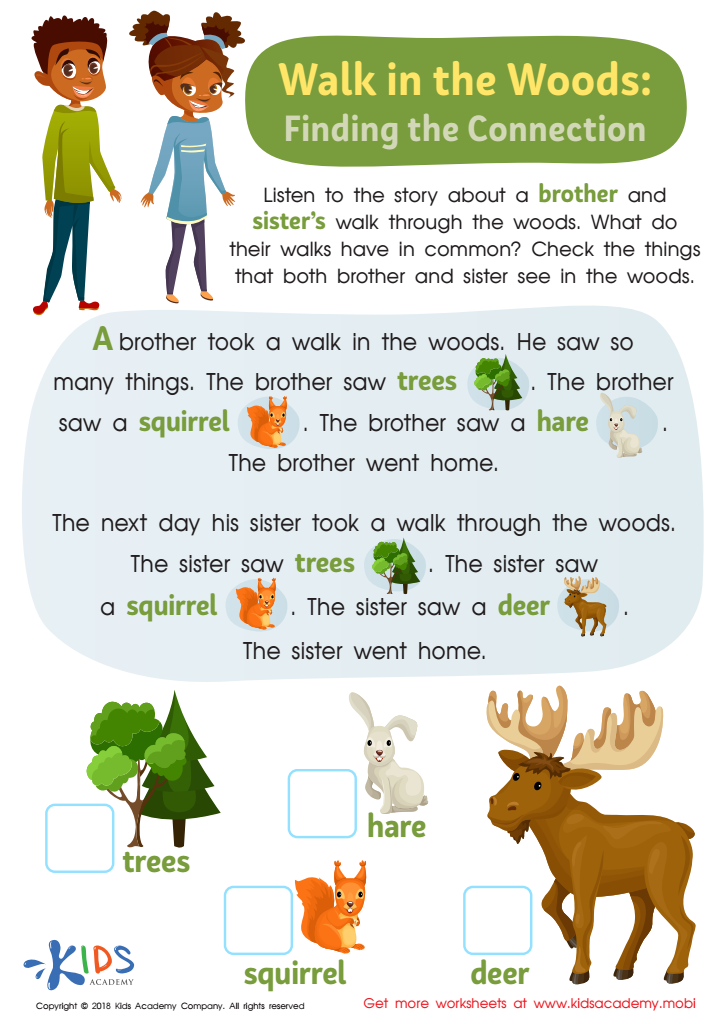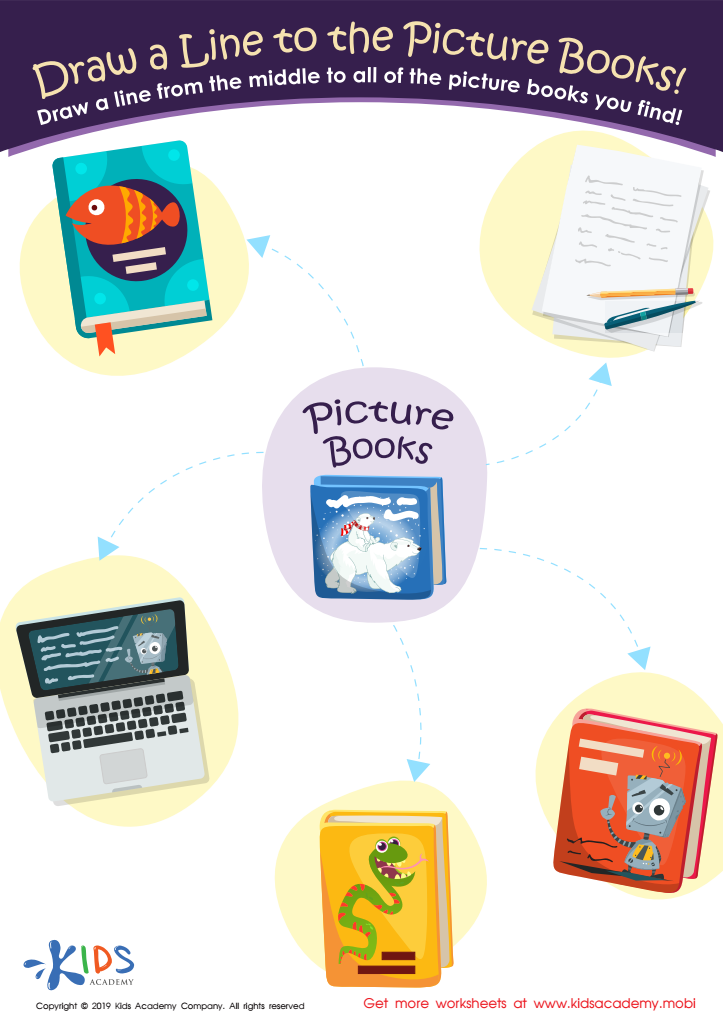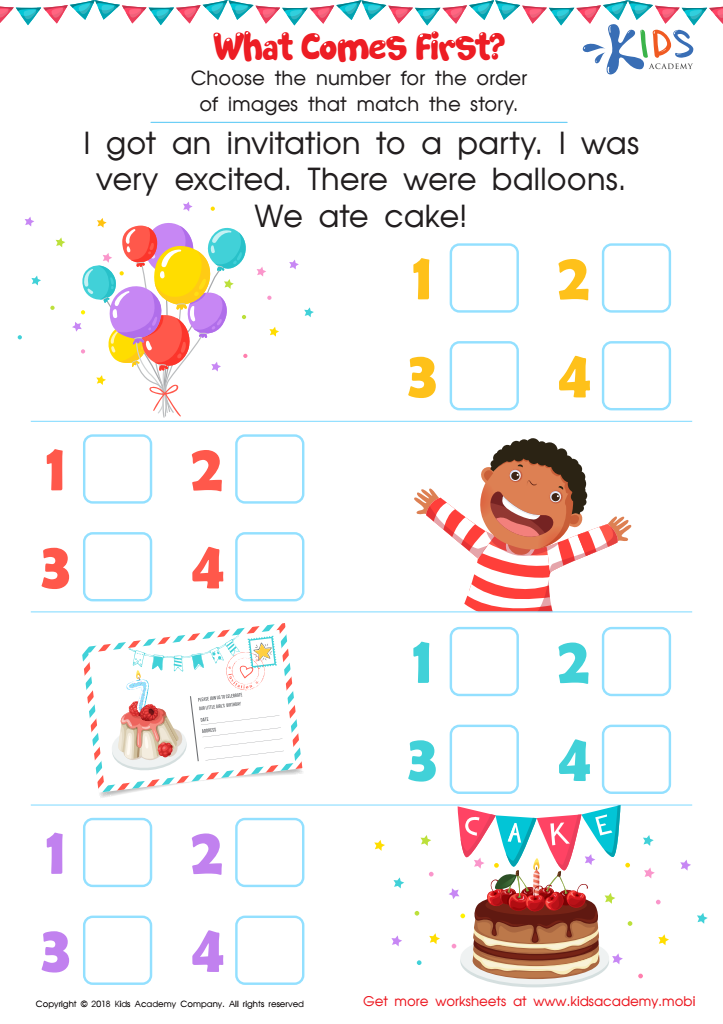Logical thinking Normal Reading Worksheets for Ages 4-7
4 filtered results
-
From - To
Boost your child's cognitive development with our "Logical Thinking Normal Reading Worksheets for Ages 4-7." Designed to foster critical thinking and problem-solving skills, these engaging activities help young minds grasp logical connections and improve reading comprehension. Perfect for early learners, our worksheets combine fun exercises with educational content, making learning enjoyable and effective. Each worksheet is crafted to challenge and stimulate kids, encouraging analytical thinking in a playful manner. Give your child a head start in their educational journey with our expertly designed resources that cater to developing essential learning skills for lifelong success.


First Words: What Doesn't Belong Worksheet


Walk In the Woods: Finding Connections Worksheet


Draw a Line to the Picture Books Worksheet


What Comes First Worksheet
Parents and teachers should prioritize logical thinking and normal reading skills for children aged 4-7 because these foundational abilities significantly influence their cognitive and academic development. At this critical stage, children’s brains are exceptionally plastic, meaning they can absorb and process new information efficiently. Logical thinking fosters problem-solving skills, which enable children to understand cause and effect, make predictions, and reason through various scenarios. Such skills are crucial not only for academic subjects like math and science but also for everyday decision-making and social interactions.
Normal reading at this age is equally important as it lays the groundwork for literacy, critical thinking, and communication skills. When children read regularly, they expand their vocabulary, comprehend complex sentences, and develop the ability to understand and follow instructions. This early exposure to reading also cultivates a lifelong love of learning, curiosity, and imagination. Moreover, strong reading skills are interconnected with improved writing, listening, and speaking abilities, fostering a well-rounded academic skill set. By paying close attention to developing these areas in early childhood, parents and teachers can set children up for a successful educational journey, better future career opportunities, and a more enriched personal and social life. It’s a vital investment in a child's overall developmental trajectory.
 Assign to My Students
Assign to My Students















